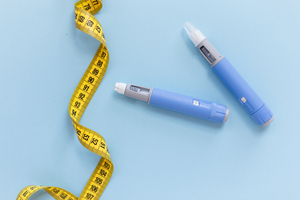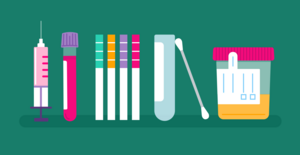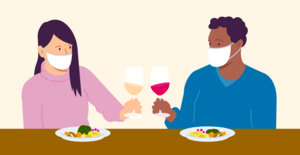Cholesterol test near me
in Bay Pines, FL
Own a clinic? Add your location.
Help patients book appointments with you on Solv. It's free!
20 instant-book locations
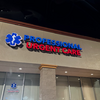
Professional Urgent Care Services, St. Petersburg
Professional Urgent Care Services

RicoLab Services, Mobile Clinic
RicoLab Services
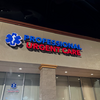
Professional Urgent Care Services, Tampa
Professional Urgent Care Services

Urgent Care & Wellness Center, Lutz
Urgent Care & Wellness Center

Urgent Care of New Port Richey, New Port Richey
Urgent Care of New Port Richey

AFC Urgent Care, Seminole
AFC Urgent Care

AFC Urgent Care, St. Petersburg
AFC Urgent Care

AFC Urgent Care, Largo
AFC Urgent Care

AFC Urgent Care, Pinellas Park
AFC Urgent Care

AFC Urgent Care, Roosevelt Blvd
AFC Urgent Care

AFC Urgent Care, Dunedin
AFC Urgent Care

AFC Urgent Care, Holiday US Hwy 19
AFC Urgent Care

AFC Urgent Care, Riverview
AFC Urgent Care

AFC Urgent Care, Lakewood Ranch
AFC Urgent Care

Labcorp
Labcorp
Self-pay pricing
Clear self-pay prices
No more surprise bills. Solv is committed to making getting healthcare as easy as buying groceries at the store, including knowing the price of care upfront.

Quest Diagnostics
Quest Diagnostics
Self-pay pricing
Clear self-pay prices
No more surprise bills. Solv is committed to making getting healthcare as easy as buying groceries at the store, including knowing the price of care upfront.

Self-pay pricing
Clear self-pay prices
No more surprise bills. Solv is committed to making getting healthcare as easy as buying groceries at the store, including knowing the price of care upfront.

Quest Diagnostics
Quest Diagnostics
Self-pay pricing
Clear self-pay prices
No more surprise bills. Solv is committed to making getting healthcare as easy as buying groceries at the store, including knowing the price of care upfront.

Quest Diagnostics
Quest Diagnostics
Self-pay pricing
Clear self-pay prices
No more surprise bills. Solv is committed to making getting healthcare as easy as buying groceries at the store, including knowing the price of care upfront.

Self-pay pricing
Clear self-pay prices
No more surprise bills. Solv is committed to making getting healthcare as easy as buying groceries at the store, including knowing the price of care upfront.
Own a clinic? Add your location.
Help patients book appointments with you on Solv. It's free!
Bay Pines Cholesterol Tests
Cholesterol isn't always a negative thing. It aids in the growth of cells and the production of hormones, among other things. On the other hand, too much cholesterol might be dangerous.
Cholesterol comes from two different places. The liver produces cholesterol, and dietary cholesterol comes from the foods you eat. Cholesterol is found in meat, dairy, and eggs, among other animal products. Foods high in saturated and trans fats may cause your liver to produce more cholesterol than you need, resulting in dangerous cholesterol levels.
High cholesterol increases the risk of heart attack and stroke, which are two of the leading causes of mortality in the United States. In the United States, approximately 38% of people have high total cholesterol levels. Because high cholesterol has no symptoms, it's critical to have your levels checked to ensure they're within normal ranges. Cholesterol levels in children and teenagers should also be checked.
According to the CDC, those over the age of 20 who have a low risk of cardiovascular disease should get their cholesterol checked every five years. Those with risk factors for cardiovascular disease should have their cholesterol checked more frequently. Other risk factors for heart disease
Fortunately, simple lifestyle changes can help you lower your cholesterol. Reduce your intake of saturated fats and eliminate trans fats from your diet as much as feasible. Trans fats are widely found in store-bought cookies and baked goods, and are labeled as "partially hydrogenated vegetable oil" on food labels. Limit your intake of processed foods, especially those heavy in sugar, and consume lots of fresh fruits and vegetables.
Increase your physical activity by at least three times per week. Any type of physical activity is useful. Instead of taking the elevator during your lunch break, go for a walk. Aim for at least 10,000 steps per day.
Don't smoke, and drink alcohol only in moderation. Not only will these changes help you lower your cholesterol, but they will also improve your cardiovascular health.
Cholesterol Test FAQs
Do I need to see a doctor before getting a cholesterol test in Bay Pines?
A cholesterol test is often a simple blood test. While you do not need to see a doctor first, it is a good idea to call your doctor's office and ask about the type of test that will be performed. This is because some cholesterol tests need you to fast before taking them.
How much do cholesterol tests cost in Bay Pines?
A cholesterol test's price is determined by several factors, including the type of test required, the location where the test is administered, and whether or not you have health insurance. For example, a cholesterol test at a walk-in clinic or drugstore could cost around $100.
Does insurance cover cholesterol screening?
Cholesterol testing is commonly performed as part of a yearly physical exam, which is usually covered by insurance. Your insurance plan, on the other hand, may place limitations on cholesterol testing. They might pay for a cholesterol test every five years, for example. You can find out what your policy covers by calling your insurance carrier or looking at your policy papers.
How can you tell if you have high cholesterol without a test?
High cholesterol has no visible indications or symptoms. The only way to know if you have high cholesterol is to have a blood test. Over the age of 35 and 45, men and women should get their cholesterol levels examined. You may be at risk for high cholesterol if you have a BMI of 30 or more, don't get enough exercise, smoke, drink too much alcohol, or consume too much saturated or trans fat.
What can I eat the night before a cholesterol test?
You should avoid eating or drinking anything other than water the night before your cholesterol test if your doctor has recommended you to fast. If your doctor has not recommended you to fast, you can eat and drink normally. Consult your doctor if you're unsure whether or not you should fast.
How long should I fast before a cholesterol test?
Most people must fast for 9 to 12 hours before taking a cholesterol test. Fasting for at least 12 hours prior to your test will assist ensure that a single meal has no impact on your results. All cholesterol tests do not require fasting, so check with your doctor and make sure you follow their instructions.
How do I interpret cholesterol blood test results?
A cholesterol test measures total cholesterol, LDL cholesterol, and HDL cholesterol. There may also be triglycerides and very low-density lipoprotein (VLDL). Total cholesterol and LDL cholesterol should be low, whereas HDL cholesterol should be high. Inquiring with your doctor for assistance in interpreting your results is always a good idea. High total cholesterol may be caused by a higher HDL level, which is actually good. It's vital to understand how your test findings are broken down.
What is a normal cholesterol range?
The unit of measurement for cholesterol is milligrams per deciliter (mg/dL). Adults with total cholesterol levels less than 200 mg/dL are generally considered healthy. Blood sugar levels of 240 mg/dL are considered dangerously high. LDL cholesterol levels should be under 100 milligrams per deciliter (mg/dL). 160 mg/dL of LDL cholesterol is considered high. HDL levels should be at least 60 milligrams per deciliter (mg/dL). Low HDL levels of 40 mg/dL or below are linked to an increased risk of heart disease.
How can I book a cholesterol test through Solv?
With Solv, scheduling a cholesterol test is simple. Simply type "cholesterol" into the search box, and when the cholesterol test option appears, select it. You can choose to use an existing location or create a new one. You'll discover a list of providers in your area, as well as available appointment times, on the next page. To schedule an appointment, select a time and location that is convenient for you and fill out the form.
Can I do an at home cholesterol testing in Bay Pines?
At-home cholesterol testing are possible, but they aren't necessarily accurate or reliable. Pricking your finger with a lancet and transferring a few drops of blood to a test strip are the most common methods for at-home cholesterol testing. Unfortunately, if these tests aren't done appropriately, they can be inaccurate. Furthermore, they usually only measure total cholesterol, which isn't as useful as knowing how your LDL and HDL cholesterol are distributed. For the best results, have the test performed by a certified healthcare provider.

Updated on Nov 25, 2025
Solv has strict sourcing guidelines and relies on peer-reviewed studies, academic research institutions, and medical associations. We avoid using tertiary references.
Related Searches
DOT Exam in Bay Pines
Ear Wax Removal in Bay Pines
Sports Physicals in Bay Pines
A1C Test in Bay Pines
Allergy Testing in Bay Pines
Basic Metabolic Panel in Bay Pines
Blood Test in Bay Pines
CMP Test in Bay Pines
Cholesterol Test in Bay Pines
Diabetes Test in Bay Pines
Diagnostic Test in Bay Pines
H Pylori Test in Bay Pines
Hepatitis test in Bay Pines
Mono Test in Bay Pines
Pregnancy Test in Bay Pines
RSV Test in Bay Pines
STD Testing in Bay Pines
Strep Test in Bay Pines
TB Test in Bay Pines
Thyroid Test in Bay Pines
Vitamin D Test in Bay Pines
Aetna Urgent Care
Blue Cross Blue Shield Urgent Care
Cigna Urgent Care
COVID-19
Flu
United Health Urgent Care
» All services in Bay PinesFind cholesterol test
Nearby cities
Everyday Healthcare, Simplified
Expert advice to help you live your best life
